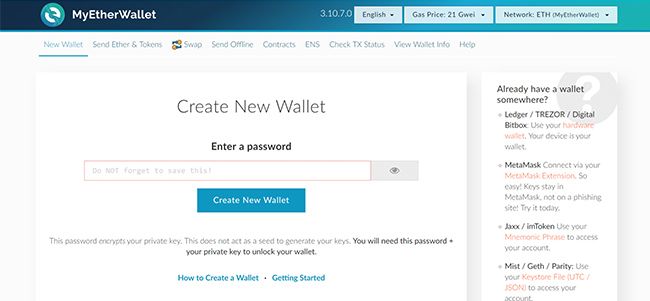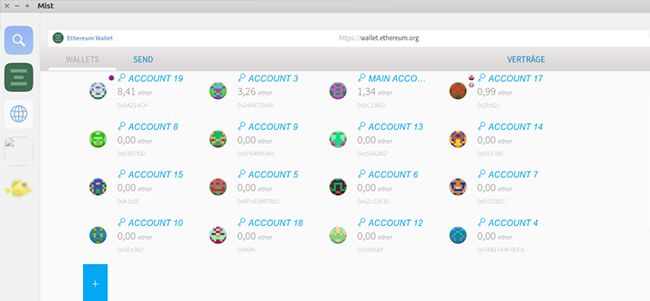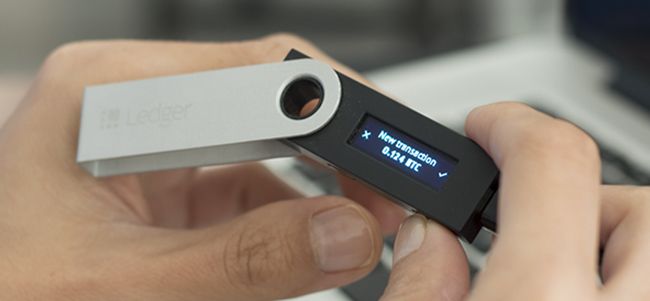The Best Ethereum Wallets: The Perfect Blend of Speed and Security
One of the Achilles’ heels of cryptocurrencies is their propensity for being hacked. To be sure, these hacks aren’t of the blockchains themselves–rather, hackers target poorly protected crypto wallets and make off with the spoils. Lest anyone think that only careless individuals are to blame, companies and exchanges are subject to security breaches too.
For Ethereum users, there are myriads of crypto wallets available to keep digital assets secure. But first, what exactly is an Ethereum wallet?
Ethereum Wallets Explained
In contrast to leather wallets where people keep their paper bills, Ethereum wallets don’t actually store digital coins. This is because Ethereum coins aren’t housed in a single location, or anywhere in the physical form. The only thing that exists is records of transactions on the Ethereum blockchain.
Ethereum wallets store public and private keys and allow blockchain users to interact directly. Wallets let users monitor their coin balance, send money, and conduct blockchain related operations.
These are the most common types of Ethereum wallets
Hardware wallets
Wallets that are dedicated devices secured by a chip or other device. They are connected to a computer and never require the input of a private key on the computer itself. They are offline and are the most secure storage method, but can be expensive.
Software wallets
Wallets that are powered by computer software. They come in three formats–desktop, online, and mobile. Desktop wallets are a little more secure than online or mobile wallets, since they don’t have to be connected to the internet. In contrast, exchange-based wallets and mobile wallets are always online.
Paper wallets
Wallets that are typically a printed piece of paper or word processing document and contain a cryptocurrency address and a private key. Paper wallets are inexpensive and a form of cold storage, because the paper wallet isn’t connected to the internet. However, if the paper wallet and its backups are lost, the money is gone forever. Additionally, a device still needed to access the currency online, so if the device is hacked, the currency would be vulnerable to theft. They are also more complicated to use.
The Perfect Blend of Speed and Security
No matter which type of wallet one uses, the goal should be a perfect blend of speed, so transactions are quick and easy, and security, so digital assets are protected. Here are some of the best Ethereum wallets available.
Users should diligently research each wallet listed below before making their choice (or choices). Cryptocurrency use should be done with care, and even though the technology is advancing rapidly, it is no substitute for thorough education and careful research.


Jaxx – This software wallet is known for its ease of use and portability. It allows its users to create a new address for each transaction, boosting security.
However, it has had issues with hacks in the past, related to its twelve word passphrase. So far, not much has been done to correct this issue.


MyEtherWallet – Another software-based wallet. It is a client side interface for generating new wallets. It connects to other storage options like Jaxx and Ledger NanoS and boasts of fast transactions.
Unfortunately, it limits users to one public address and has low security. If users aren’t careful, they can end up sending keys to a fake URL.


Mist – This is an open source software wallet that is recommended by the Ethereum community. Users love its flexibility, as it comes with a desktop function and is compatible for Linux users.
It is a bit more complicated than other wallets, as users need to install the most up to date version keep track of developments.


Exodus – This is a desktop wallet that is a one-stop-shop for securing, managing, and transferring crypto assets. It is geared towards traders and investors and is known for its ease of use. Developers constantly work on the software to rid it of bugs and minor errors.
However, it can be difficult to use and forces users to receive tokens at the same address. Some users report losing their holdings or failed transactions not being returned to account balances.


Ledger NanoS – This hardware storage method is one of the more popular hardware solutions. It uses encrypted chip technology to store private keys and ensure safe communication between other devices. It is portable and relatively inexpensive for a hardware option.
Like all hardware devices, there is the risk of physical damage or loss and can be more technically involved than other user-friendly options.


Trezor – Another hardware storage solution, this wallet is known for its ease of use, flexibility, and security. It provides support for a variety of cryptocurrencies and also integrates with Ethereum. It is secured by two-factor authentication and has the option of password free logins. As a hardware solution, it is offline and extremely secure.
The device itself is very small–which can also be a good thing–so it is possible to lose it or accidentally damage it. It is also more expensive than other security solutions.

Thanks, very good post !!!!
Awesome Work!

Keep it up!!!
@cryptoinvestinfo
Congratulations @crowdcreate! You received a personal award!
You can view your badges on your Steem Board and compare to others on the Steem Ranking
Vote for @Steemitboard as a witness to get one more award and increased upvotes!